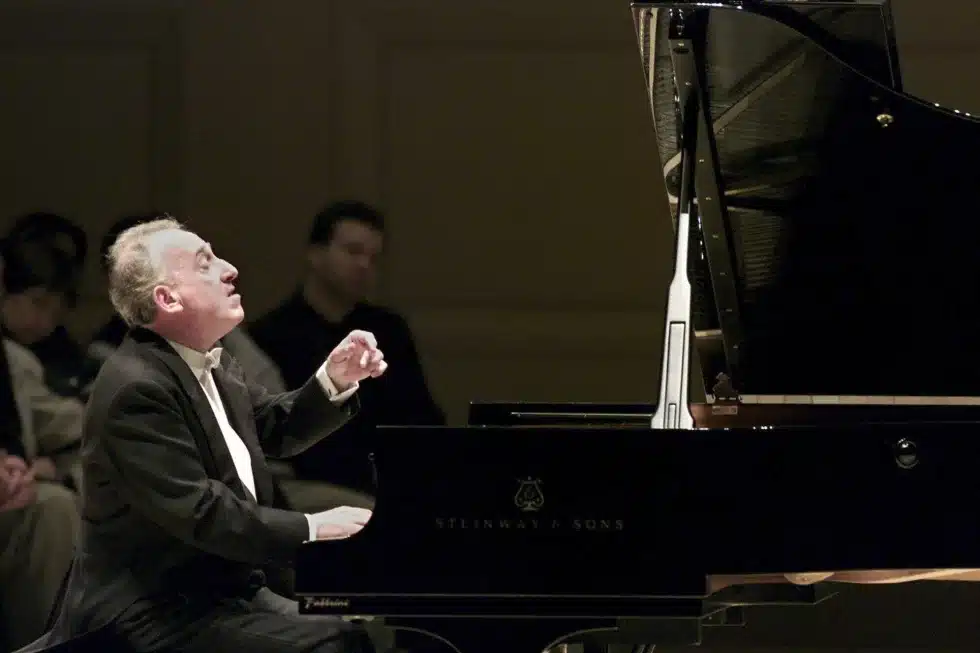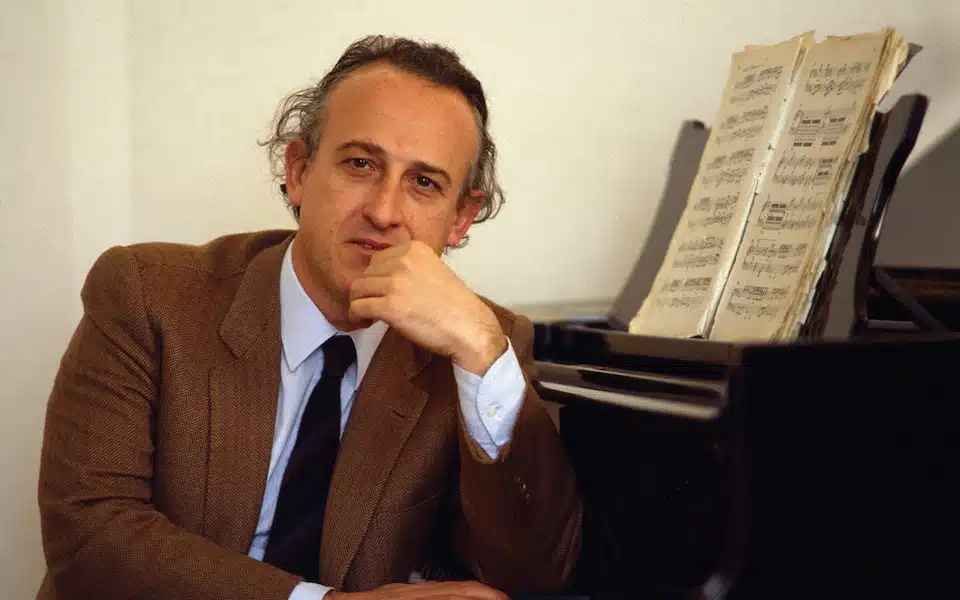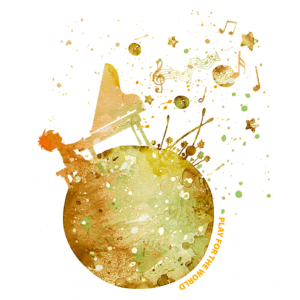Renowned Italian pianist, conductor, and Grammy-winning Maurizio Pollini died on March 23rd, 2024 at 82 years old. Born in 1942 in Milan, Italy, Pollini had an extraordinary international career that spanned over six decades. Recognized for his extremely adept technical and musical capabilities, Pollini’s interpretations of classical, early 20th century, and postwar modernist repertoire were unrivaled.
Although cause of death was not immediately announced, Pollini had canceled a concert in 2022 due to heart problems. His death was announced by La Scala opera house in Milan, where Pollini frequently performed.
Pollini was known for a masterful command of the piano and the room. He almost never had finger slips and, to most listeners, was one of the greatest pianists of his time – with pristine, clear, and clean playing.

“I grew up in a house with art and artists,” Pollini said in an interview. “Old works and modern works coexisted together as part of life.” (Zampano, 2024).
He was born into an artistic and musical family: his father, Gino Pollini, was an architect and his mother, Renata Melotti, sang and played the piano. Pollini graduated from the Milan Conservatory and then went on to win the International Ettore Pozzoli Piano Competition in 1959 and the VI International Chopin Piano Competition in 1960 when he was 18 years old. Arthur Rubinstein was leading the jury at the time and said Pollini was a boy who could play piano better than any of them.
After these initial awards, Pollini would then take a break from his career to study – he believed an artist should keep their eyes open to the world around them in order not to lock themselves into “a closed compartment as a concert pianist” (Page, 2024).
He committed to social causes, even radical political movements such as the Italian Communist Party, played free live concerts, and then, in 1971, returned to recording with Deutsche Grammophon. His Grammy in 1980 was in the category best classical performance for his performance of Bartók’s Piano Concertos 1 and 2 with the Chicago Symphony Orchestra. He won another Grammy in 2007 for instrumental soloist performance for his album of Chopin Nocturnes.
His recordings span most of the great solo piano works of Chopin, Beethoven, and Schumann, as well as Mozart and Brahms piano concertos, Liszt, Debussy, and Schoenberg, to name a few. Although particular about what he recorded and where he played, Pollini performed extensively throughout Europe, the Far East, and in the United States. He played at Carnegie Hall more than 100 times as well as appeared at the Kennedy Center and Strathmore Hall.
Pierre Boulez, a conductor and composer, described Pollini for the New York Times in 1993. “He does not say very much, but he thinks quite a lot,” Boulez said. “I find him very concentrated on what he is doing. He goes into depth in the music, and is not superficial, and his attitude as a musician is exactly his attitude as a man. He is as interesting as anyone could be.” (Page, 2024).
Pollini is survived by his wife, Maria Elisabetta, and son, Daniele Pollini.






